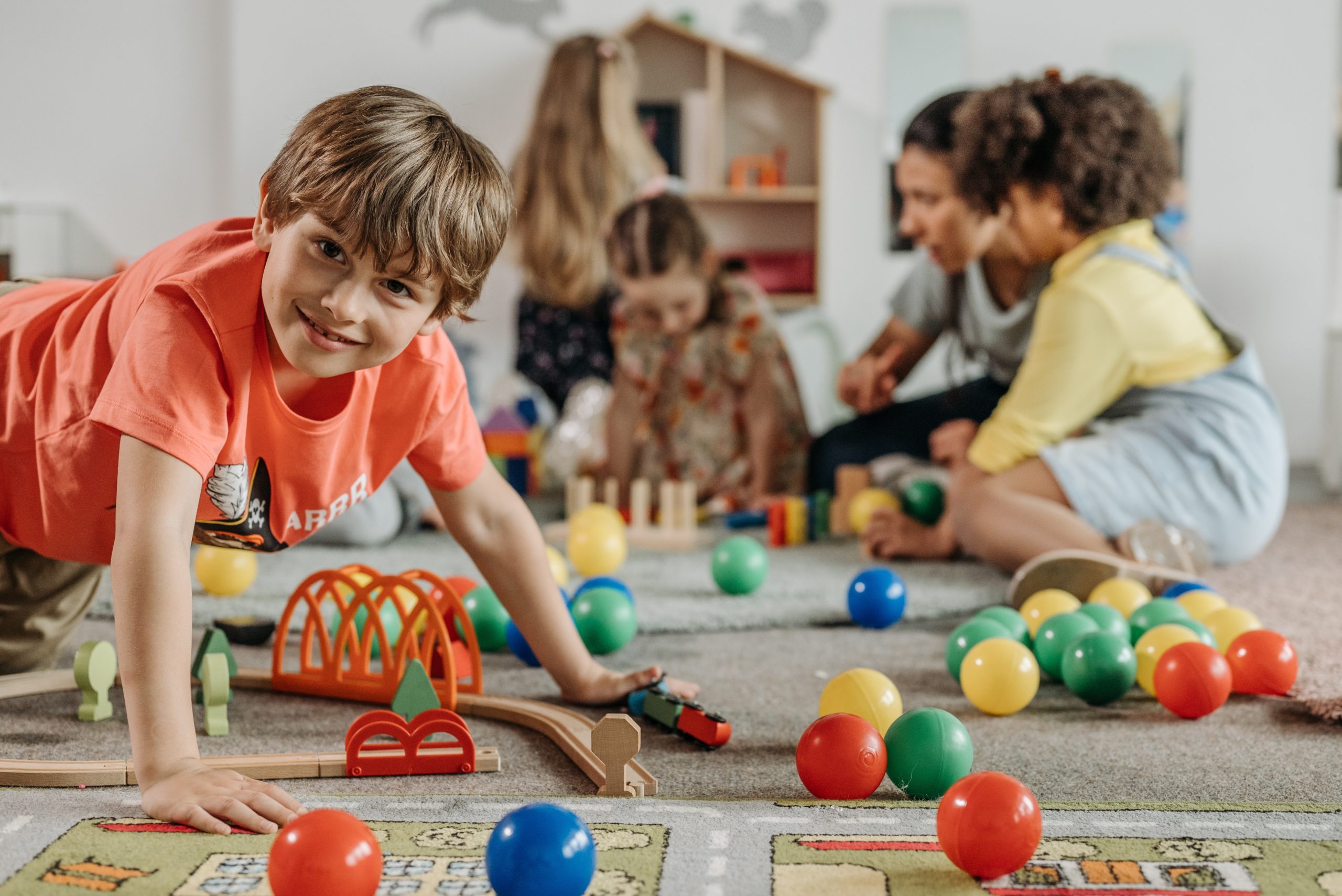
Selecting the right childcare and preschool is essential, as this environment sets the foundation for your child’s love of learning as they grow. Montessori classrooms are designed to meet the developmental needs of each child and help them meet their full potential. While every classroom is a little different, there are certain aspects of the Montessori Method that must be present to indicate a quality Montessori environment.
Below, we at North American Montessori Center have broken down what can be expected from a Montessori classroom.
Inside a Montessori Classroom
Hands-on Learning
One of the things that set a Montessori-style education apart from a traditional classroom is how children learn. Children are empowered to use the mind, body, and the senses to discover the answer for themselves through hands-on learning and problem-solving, which leads to a much deeper learning experience.
Child-centered
Another important aspect of Montessori education is that it reframes the adult/child relationship and places the child at the center of their own learning. Children do not sit in rows staring at the teacher at the front of the classroom, rather, they get to move freely throughout the classroom. Being child-centered means you will likely find them working and playing in many different ways, including individually, in pairs, in small and large groups, on the floor, at tables, and outside.
Independence
As humans, we naturally strive toward independence, even as children. Children want to do things for themselves and participate in the world around them. Montessori classrooms help children reach higher levels of independence. Montessori education is based on self-directed activity, where children are given the opportunity to make creative decisions in their learning and choose practical, social, and intellectual activities that interest them.
Freedom of Choice
Many people misinterpret “freedom in the classroom” as children can do whatever they want; however, that is not the case. Montessori classrooms have freedom within limits and clear expectations are defined. When those boundaries are pushed, children will experience the logical consequences of their choices, which encourages the natural development of self-regulation.
Collaboration
Unlike traditional daycare centers and preschools that separate children by age, Montessori classrooms are separated by developmental stages. Having children of different ages interact with each other helps them learn from others and be role models. Children often work in groups but still learn through their own experience and explore at their own speed — meaning they collaborate with their classmates, not compete. The focus is on each child’s own improvement rather than keeping up with their classmates.
Contact Our Montessori Preschool and Child Care Center
At North American Montessori Center, we specialize in preparing children and students for their future in a way that traditional school programs cannot. Contact us today to learn more about our Montessori classrooms and how we can help your child grow and develop.
Schedule a visit today!

